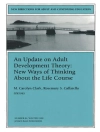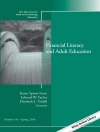Technology and Workplace Skills for the Twenty-First Century examines many of the rapid changes taking place at the intersection of workplace demands and higher education throughout the Asia Pacific region. The globalized, interdependent twenty-first century workforce is built around computing, communication, and automation. These characteristics have changed the ways in which higher education is connected to the workforce and raised the stakes for educating students for the changing workforce. In this book, scholars and education leaders throughout Asia Pacific and the US investigate how the changing needs of the workforce have shaped higher education’s curriculum, methods, and orientation, and show how different Asia Pacific countries have responded differently to these challenges.
Table des matières
Introduction; Kamila Ghazali and Deane Neubauer
PART I: THE PROBLEMATIC
1. Twenty First Century Work Skills and Competencies; Deane Neubauer and John N. Hawkins
2. Social Media, Social Intelligence, and Emerging Trends in Higher Education Communication; W. James Jacob
3. How to Survive and Thrive: Educating the Technologically Adept for Success in the Twenty-first Century; Lindsay A. Gibson and William A. Sodeman
4. Reshaping Higher Education for a Globalized Future; Deborah Halbert
PART II: COUNTRY STUDIES
5. Twentieth-first Century Engineering Education: KMUTT Imagineering Program; Bundit Thipakorn and Klangjai S. Tawornpichayachai
6. Student Learning Through Active Learning: How Learning Commons Support Students ‘ ‘ Independent Learning; Reiko Yamada
7. The Politicization of the Ph D and the Employability of Doctoral Graduates: an Australian Case-Study in a Global Context; Denise Cuthbert and Tebeje Molla
8. US Public Higher Education: The Challenge to Lower Costs and Increase Access and Quality; Linda Johnsrud
9. Teacher Education Innovation in Northeast Normal University of China: University- Governments-School Cooperation Model; Guangping Li and Rao Congman
10. Graduate Competencies: Issues and Solutions of Graduate Employability in Malaysia; Shukran Abd Rahman and Koo Yew Lie
11. Vietnam Higher Education and The Role of Learners in the Twenty-First Century; Nguyen Thi My Ngoc
12. Determining Quality and Relevance in US Universities: Who Should Decide? And How Should They Decide?; A. Lee Fritschler and Arthur M. Hauptman
13. Emerging New Identities for Public Universities: Implications on the Postgraduate Programs in University of Malaya; Kamila Ghazali
14. Internship Programs of Higher Education in Taiwan: Cases from Fu Jen Catholic University; Wei-Pen Tsai, Shang-Chi Gong, Mei-Tzu Chiang, and Chen-Fon Lin
15. Where from Here?; Kamila Ghazali and Deane Neubauer
A propos de l’auteur
W. James Jacob, University of Pittsburgh, USA Lindsey A. Gibson, Hawaii Pacific University, USA William A. Sodeman, Martin Methodist College, USA Debora Halbert, University of Hawai`i at Manoa, USA Bundit Thipakorn, University of Missouri, Columbia, USA Klangjai S. Tawornpichayachai, KMUTT Cluster for Educational Development (C4ED), Thailand Reiko Yamada, Doshisha University, Japan Denise Cuthbert, RMIT University, Australia Tebeje Molla, Monash University, Australia Linda Johnsrud, University of Texas, USA Guangping Li Shukran Abdul Rahman, International Islamic University Malaysia Koo Yew Lie, Universiti Kebangsaan, Malaysia Nguyen Thi My Ngoc, Vietnam National University, Ho Chi Minh City, Vietnam A. Lee Fritschler, George Mason University, USA Arthur M. Hauptman, USA Wei-Pen Tsai, Fu Jen Catholic University, Taiwan Shang-Chi Gong, Fu Jen Catholic University, Taiwan Mei-Tzu Chiang, Fu Jen Catholic University, Taiwan Chen-Fon Lin, Fu Jen Catholic University, Taiwan












